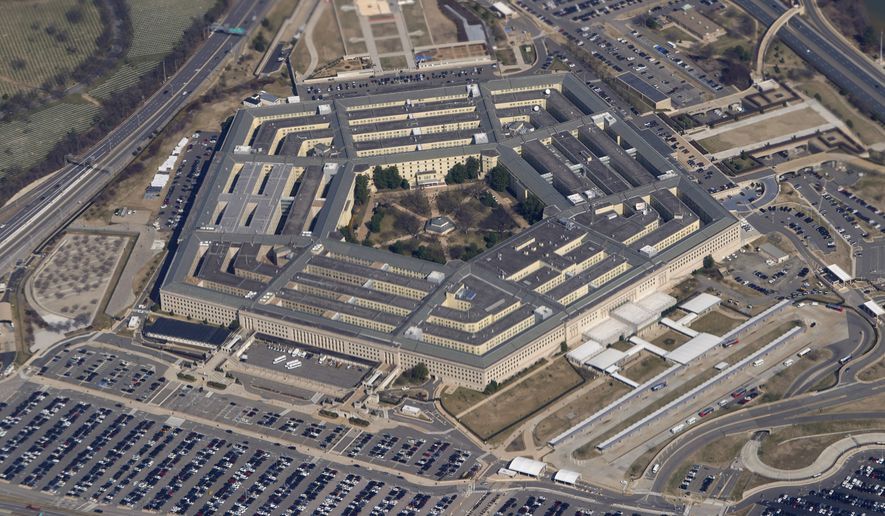Military spending would hit $842 billion in fiscal year 2024, a $26 billion increase over 2023 and nearly $100 billion higher than the 2022 baseline, under a budget released Thursday by President Biden, but GOP critics quickly said the increase was too small to meet the country’s security challenges.
The White House said the budget prioritizes China as America’s “pacing challenge” in line with the 2022 National Defense Strategy. It would include $6 billion to strengthen the U.S. role in the Indo-Pacific and $2.3 billion to support other countries in the region.
The budget provides $37.7 billion to maintain the nation’s nuclear deterrence capability and further gives $23.8 billion to the Department of Energy’s National Nuclear Security Administration to secure the nation’s nuclear weapons stockpile and provide nuclear power to the Navy. The budget also will provide military personnel with the largest pay raise in over 20 years and the largest raise for civilian employees in more than 40 years, Pentagon officials said, following a year in which inflation rates hit a 40-year high.
“The budget prioritizes resources for critical investments enabling the Department [of Defense] to continue implementation of the National Defense Strategy, including building the right mix of capabilities to defend against current and future threats,” Defense Secretary Lloyd Austin said in a statement.
The budget proposal is essentially a White House wish list but with Republicans now in control of the House of Representatives, the process will likely be more contentious than in recent years. The Biden budget provides more than $3 billion to advance global gender equity and equality and $10.5 billion to respond to refugee and humanitarian issues.
Mississippi Sen. Roger Wicker, the senior Republican on the Senate Armed Services Committee, immediately dismissed the Biden defense budget “woefully inadequate and disappointing.”
“It does not even resources his own National Defense Strategy to protect our country from growing threats from around the world,” said Mr. Wicker in a statement. “This defense budget is a serious indication of President Biden’s failure to prioritize national security.”
Senate Armed Services Committee Chairman Jack Reed, Rhode Island Democrat, said Mr. Biden’s defense topline request for the Pentagon reflects the security challenges faced by the country, including Russian aggression in Ukraine and China’s growing influence in East Asia.
“Some will inevitably say the topline is too much, while others will claim it is not enough. I say America’s defense budget should be guided by our values, needs and national security,” Mr. Reed said, while suggesting the House and Senate will inevitably revise Mr. Biden’s offer. “This topline request serves as a useful starting point. I look forward to receiving the detailed budget request so we can get to work.”
House Armed Services Committee Chairman MIke Rogers, Alabama Republican, said the president’s budget fails to take seriously complex and challenging threats facing the U.S.
“A budget that proposes to increase non-defense spending at more than twice the rate of defense is absurd. The president’s incredibly misplaced priorities send all the wrong messages to our adversaries,” Mr. Rogers said.
Secretary Austin contended that the budget makes “critical, targeted investments in the American people” to promote greater prosperity and economic growth.
“My priority is defending America, and ensuring that our forces are ready, resilient, and remain the world’s preeminent fighting force,” Mr. Austin said. “I look forward to working with Congress to support the President’s request.”
As they build the fiscal year 2024 National Defense Authorization Act, Mr. Rogers said Congress will “engage” with the Defense Department to determine what weapons, resources, and authorities are needed by the troops.
“Our adversaries will only be deterred by strength, not weakness,” he said.
• Mike Glenn can be reached at mglenn@washingtontimes.com.




Please read our comment policy before commenting.